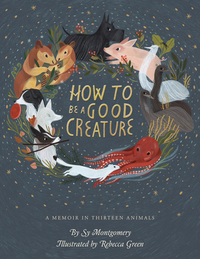You need to sign in or sign up before continuing.
Take a photo of a barcode or cover
emotional
funny
hopeful
informative
reflective
fast-paced
emotional
hopeful
inspiring
reflective
sad
medium-paced
informative
inspiring
lighthearted
reflective
fast-paced
adventurous
emotional
hopeful
inspiring
reflective
fast-paced
emotional
reflective
medium-paced
emotional
hopeful
inspiring
lighthearted
reflective
relaxing
sad
fast-paced
funny
hopeful
informative
inspiring
lighthearted
reflective
I found this book in a Free Little Library. It was deceiving.
The first chapter was very hard to get through. She uses this sentence in reference to a dog: "[...] her anus seemed to bloom when she hunched to defecate." I can appreciate imagery in literature, but that's something I just didn't need to imagine while trying to escape into a book. I have two dogs with blooming anuses, and I see them enough.
Unlike other reviewers, I started to enjoy the book by Chapter 3 and disliked it again by Chapter 9. The stories of her pets were the only times I saw her make actual positive influences in the lives of animals--giving rescued pets a good, happy life. The octopus story, everyone's favorite chapter, just made me feel sadness, anger, and despair. It is even mentioned that the octopus cannot fulfil her purpose by giving her life to fertilized eggs because she is in captivity. The author shrugs off this issue with a "but I got to play with her" mentality. How is taking away an animal's purpose being a good creature?
I was disappointed that she never mentions how those animals helped her be a better creature, just that they taught her how to be one. And she only said that in the very last sentence of the book. If there were messages I was supposed to gather, I didn't get them.
The first chapter was very hard to get through. She uses this sentence in reference to a dog: "[...] her anus seemed to bloom when she hunched to defecate." I can appreciate imagery in literature, but that's something I just didn't need to imagine while trying to escape into a book. I have two dogs with blooming anuses, and I see them enough.
Unlike other reviewers, I started to enjoy the book by Chapter 3 and disliked it again by Chapter 9. The stories of her pets were the only times I saw her make actual positive influences in the lives of animals--giving rescued pets a good, happy life. The octopus story, everyone's favorite chapter, just made me feel sadness, anger, and despair. It is even mentioned that the octopus cannot fulfil her purpose by giving her life to fertilized eggs because she is in captivity. The author shrugs off this issue with a "but I got to play with her" mentality. How is taking away an animal's purpose being a good creature?
I was disappointed that she never mentions how those animals helped her be a better creature, just that they taught her how to be one. And she only said that in the very last sentence of the book. If there were messages I was supposed to gather, I didn't get them.
emotional
inspiring
hopeful
inspiring
reflective
relaxing
fast-paced






